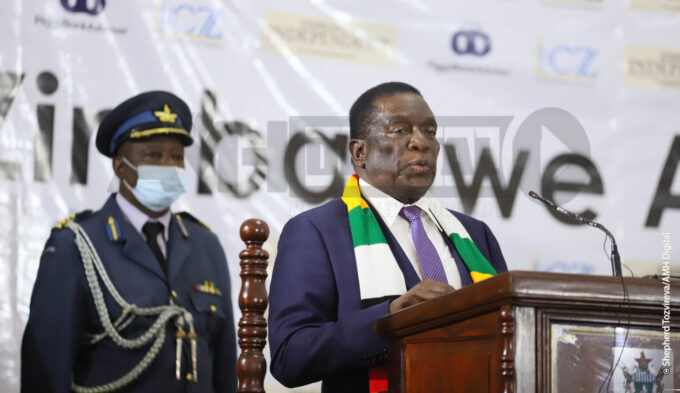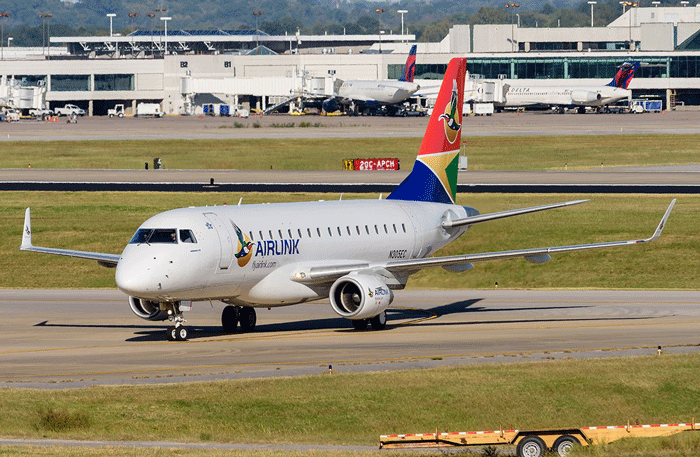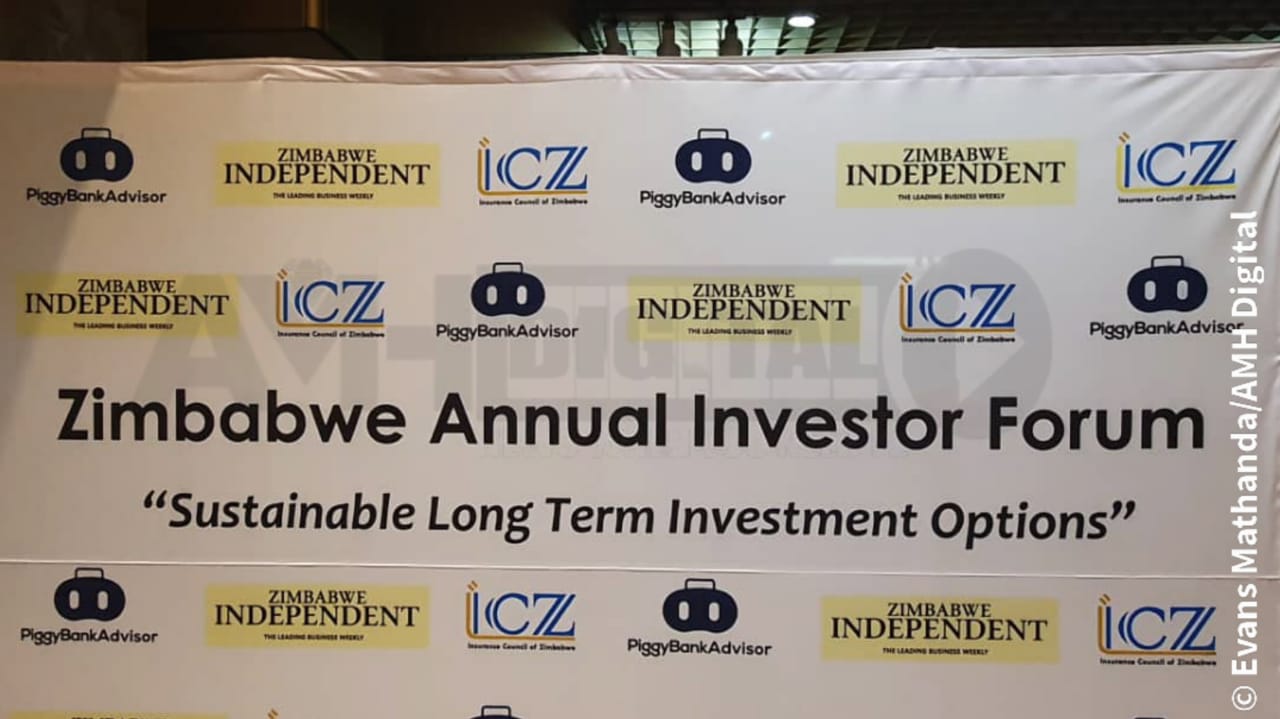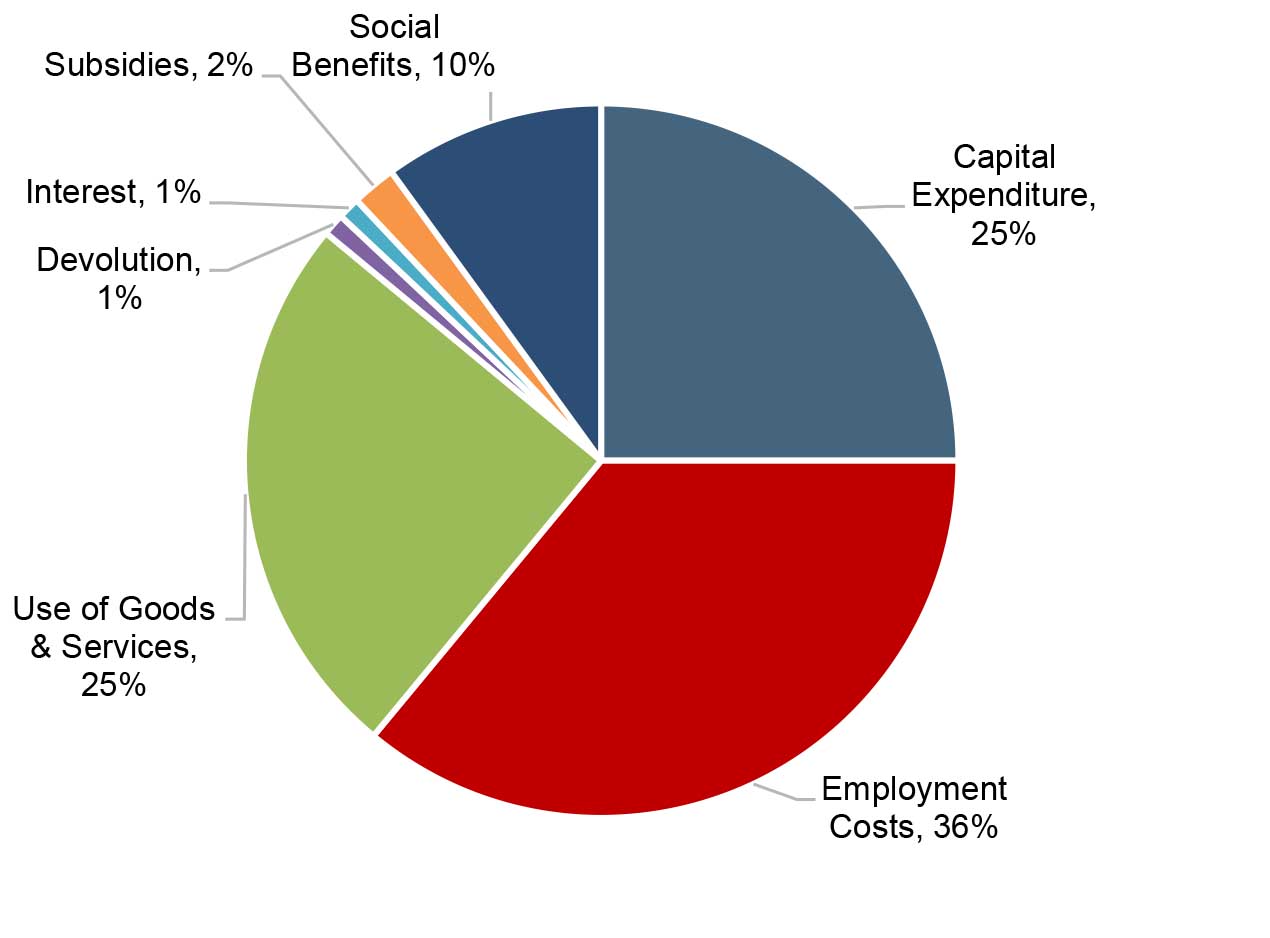
SYDNEY KAWADZA PRESIDENT Emmerson Mnangagwa this week moved to calm market concerns over the obtaining business climate, as he gave fresh undertakings to iron out hurdles to investment under his “Zimbabwe is Open for Business” plan.
His five-year-long campaign to reverse four decades of economic mismanagement had recently come under the spotlight after annual inflation returned to haunt the country, a decade after a 500 billion percent rate in 2008 ended with a currency crash.
The annual inflation rate hit 256% last month, from 191% in July, after headwinds including exchange rate volatilities hit the southern African country.
Read more…- AMH pledges to create more dialogue platforms
- ZSE CEO speaks on suspended counters
- You’re to blame, ED tells business
- Zimbabwe Annual Investor Forum: We have a plan for suspended Old Mutual, PPC counters – ZSE
- Markets warm up to financial inclusion strategy
- Zimbabwe Annual Investor Forum: We have a plan for suspended Old Mutual, PPC counters – ZSE
Last month, Finance and Economic Development minister, Mthuli Ncube cut 2022 gross domestic product (GDP) growth targets to 4,6%, from a 5,5% forecast announced in December.
Mnangagwa took the opportunity presented by the inaugural Zimbabwe Annual Investor Forum — a product of the Zimbabwe Independent and PiggyBankAdvisor — to assure investors that he was scaling up efforts to improve the investment climate.
This would be crucial for his plan to transform Zimbabwe into an upper-middle-income economy by 2030.
“As investors pursue business interests in Zimbabwe, rest assured that my government is open to dialogue towards efficient and transparent regulations as well as industry specific competitiveness strategies,” Mnangagwa said.
#WATCH 🟤We bring you #LIVE updates from the inaugural #Zimbabwe Annual Investor Forum where HE @edmnangagwa is expected to address ▶️Sustainable Long-term Investment Opportunities #ZimInvestment2022#MediaNDS1@MypiggybankC pic.twitter.com/TlvQWcyMnH
- Chamisa under fire over US$120K donation
- Mavhunga puts DeMbare into Chibuku quarterfinals
- Pension funds bet on Cabora Bassa oilfields
- Councils defy govt fire tender directive
Keep Reading
— Zimbabwe Independent (@Zimindependent) August 24, 2022
“The Zimbabwe Investment and Development Agency (Zida) is ready to facilitate the processing of investment proposals, thereby adding the much-needed convenience to investors and significantly reducing bureaucratic red tape and the cost of doing business.
“Position yourselves at the forefront of the ongoing transformation, modernisation and industrialisation of our great country, by investing in Zimbabwe.
“As a government, we are indeed on a course which has seen robust and responsive trade and investment policy strategies that are pushing the country along on its current path of recovery and long-term growth. Our cross-cutting reforms have to date enhanced the investment environment and seen greater participation of the private sector,” he added.
Mnangagwa spoke as executives and economic analysts attending the event warned that while several reforms had been implemented, they were a fraction of the scale of interventions required to stabilise Zimbabwe’s troubled economy.
The depreciation of Zimbabwe’s currency was recently halted through the introduction of gold coins, which diverted speculators from sourcing forex from the parallel market, where rates had run riot, aggravating a tough business climate.
But this was after rates had spiralled to about US$1:ZW$1 000 just before the intervention from US$1:ZW$300 in December last year.
In response, Mnangagwa announced wide-ranging measures in May including directing banks to stop lending.
The President said Zimbabweans must work together in rebuilding the country.
“I recall that earlier this year, Alpha Media Holdings also hosted the International Energy Conference, in the resort City of Victoria Falls. The creation of such platforms is commendable and demonstrates the Group’s commitment to promote Zimbabwe as an attractive investment destination,” he said.
🟤HE @edmnangagwa arrives for the #Zimbabwe Annual Investor Forum▶️Sustainable Long-term Investment Opportunities #ZimInvestment2022#MediaNDS1 pic.twitter.com/fOwnlZ4Wxd
— Zimbabwe Independent (@Zimindependent) August 24, 2022
“This will also help foster partnerships from other more developed countries, within the comity of nations. Forums like these allow us to share a combination of knowledge around investment and financing towards accelerating the development of our country.
“This conference is further in keeping with my long held conviction on the importance of open dialogue and strong collaborations between government and the private sector to drive sustainable development.
“The progress made under the Second Republic is there for all to see. My government stands ready to work with you as investors and partners in the private sector to achieve our country’s ambitious and yet achievable goals,” Mnangagwa said.
He added that: “This Forum is, therefore, pivotal and timeous as it interrogates various ways to scale up sustainable long-term financing and investment.
Justin Bgoni, chief executive officer at the Zimbabwe Stock Exchange (ZSE), said at the conference there has been no foreign currency coming in since 2015.
‘You need the Government in your capital markets for it to develop’ – Justin Bgoni – @ZSE_ZW CEO▶️Sustainable Long-term Investment Opportunities #ZimInvestment2022#MediaNDS1@MypiggybankC pic.twitter.com/0DQHa6Bkcm
— Zimbabwe Independent (@Zimindependent) August 24, 2022
“The risk is there but we also have to pitch the returns that come with investing in Zimbabwe. We are not all happy with what has happened because it affected business, but we must look at the bigger picture, which is macroeconomic stability,” he said.
“But we are managing perception outside what we are doing through a reform process. It is a long road but we will continue.”
Batanai Matsika, the founder of advisory firm PiggyBankAdvisor, joined several other experts who raised the red flag over policy inconsistencies in Zimbabwe, which they said were behind subdued FDI inflows.
‘We intend to grow the reach and scope of the Zimbabwe Annual Investment Forum targeting both local and international investors in 2023’ – @MypiggybankC CEO Batanai Matsika▶️Sustainable Long-term Investment Opportunities #ZimInvestment2022#MediaNDS1 pic.twitter.com/KWbHmYSUDh
— Zimbabwe Independent (@Zimindependent) August 24, 2022
“In terms of policy as a government there have been a lot of changes that have led to a lot of instability in terms of how businesses can actually plan and focus on the future,” he told Mnangagwa, when the President asked delegates to point out his government’s shortcomings.
“In terms of the policy environment, we need to smoothen it out.
Experts said attracting FDI would be possible once a stable environment was achieved.
“Key reforms have been further designed to achieve macro-economic stability, improve the business operating environment and ensure that the structures of our industries are internationally competitive,” Mnangagwa said.
‘Our country is ready for both foreign and domestic investment’ – @edmnangagwa#ZimInvestment2022#Media pic.twitter.com/MtM1b8LX6T
— Zimbabwe Independent (@Zimindependent) August 24, 2022
“These have seen us recording remarkable milestones as the economy remains on an upward growth trajectory, with a 4,6% economic growth projection for 2022,” he added.
“The plan has ensured that public assets are restored and modernised for sustained and inclusive national economic growth. To continue delivering this, public-private synergies remain imperative.
“Financial institutions, local and foreign investors are, therefore, invited to scale up their investments and partnerships to profitably provide solutions to Zimbabwe’s infrastructure gaps.
“These exciting projects will further position Zimbabwe as a logistics hub in Southern Africa. Investments in these aspects are welcome from the private sector,” Mnangagwa said.
He commended financial institutions and private property developers for increased investments in real estate in the ongoing housing reform agenda.
“As government, we are keen to see development of not only luxury housing units but also entry-level housing schemes for the majority of our people, in both urban and rural areas. Additionally, investments in industrial infrastructure and factory shells must be considered more favourably, more so in the context of our rural industrialisation drive and devolution agenda,” he added.









